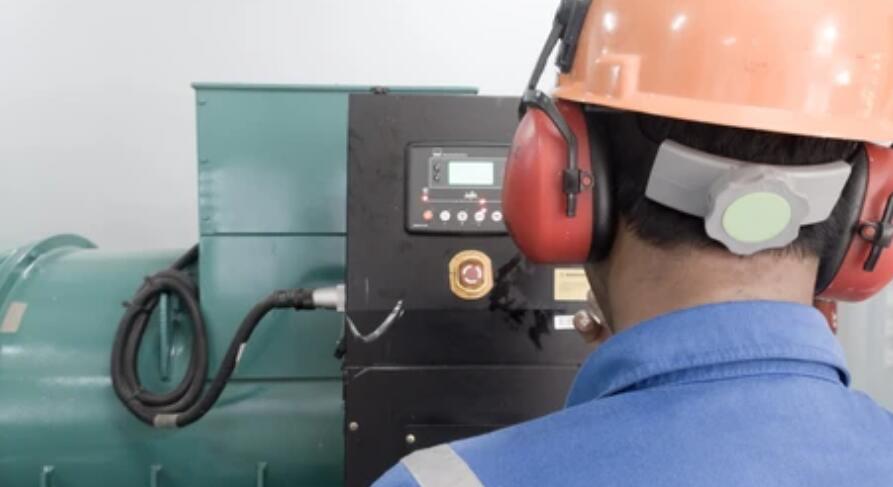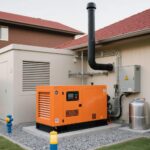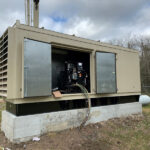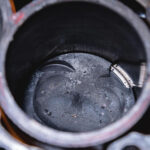
When power outages strike, diesel generators provide a reliable backup. But behind their reliability, are there any real drawbacks to consider?
One downside of diesel generators is emissions and noise, but with proper design and setup, these issues are fully manageable and should not stop you from choosing this trusted power source.
In my years working with diesel generator sets, I’ve encountered these concerns repeatedly. But I’ve also seen how each of them can be resolved through good engineering and proper application. This article will explain those key concerns—and why they should never stand in your way.
Are diesel generators bad for the environment?
Environmental concerns are common, especially in areas with strict regulations or close to residential zones.
While diesel generators emit pollutants, modern units equipped with advanced emission systems can meet strict environmental standards and reduce environmental impact.

How emissions can be controlled with modern systems
Diesel engines produce nitrogen oxides (NOx), carbon dioxide (CO2), and particulate matter (PM). These are real byproducts of diesel combustion. However, the technology has evolved rapidly. Today, most quality generators can include after-treatment systems such as:
- Diesel Particulate Filters (DPF)
- Selective Catalytic Reduction (SCR)
- Diesel Oxidation Catalysts (DOC)
These systems help reduce harmful emissions to meet even Tier 4 standards. In my projects, I often recommend enclosed sets with integrated emission control kits. I’ve seen this setup help clients meet both urban zoning laws and green building requirements.
I always advise checking your local emissions standards. Then, select a generator that’s pre-configured to meet them. If needed, we can customize the emission system during production.
Is fuel consumption a major concern?
Buyers often ask if diesel generators consume too much fuel and become costly to run over time.
Diesel engines are among the most fuel-efficient internal combustion engines, especially when running near their optimal load range.
Why fuel efficiency depends on proper sizing and load
The efficiency of a diesel generator is closely tied to how it’s used. The most common mistake I see is oversizing. A generator running at low load (below 30%) for extended periods burns fuel inefficiently and increases carbon buildup.
I always emphasize matching the generator capacity to the real load profile. A well-matched set running at 70–80% of its capacity provides excellent efficiency and longevity.
Here’s a comparison to illustrate fuel consumption:
| Load (%) | Fuel Consumption (L/hr for 100kVA Genset) |
|---|---|
| 25% | 5.5 |
| 50% | 10.9 |
| 75% | 15.7 |
| 100% | 21.3 |
Regular servicing, clean filters, and correct fuel storage also help optimize fuel use. With the right operation plan, diesel generators remain one of the most cost-efficient solutions for long-term power supply.
Are diesel generators too noisy?
Noise is a legitimate concern, especially for users in residential or sensitive environments.
Modern diesel generators with soundproof canopies and silencers can operate at acceptable noise levels, even in sensitive environments.

How to reduce generator noise effectively
Today’s generator sets are not like the loud, open-frame units of the past. I work with fully enclosed, sound-attenuated canopies that cut noise levels to as low as 65 dB(A) at 7 meters. That’s similar to the noise of a normal conversation.
In installations where noise is critical, such as near homes, offices, or schools, I recommend:
- Residential silencers
- Acoustic insulation
- Anti-vibration mounting
- Custom noise barrier walls
When these measures are properly applied, noise is no longer a concern. Many of my projects for telecom stations and community centers use silent-type generators with no complaints from nearby residents.
Is maintenance difficult?
Some buyers assume diesel engines are harder to maintain than other types. That’s not true with the right support and planning.
Diesel generators require regular maintenance, but the tasks are straightforward and ensure long-term reliability.

Make maintenance easy and predictable
Diesel engines are built to run long hours under tough conditions. Most of their maintenance involves routine checks that any trained technician can handle:
- Engine oil change
- Filter replacements (air, oil, fuel)
- Battery inspection
- Coolant checks
- Load testing
I always provide clients with a full maintenance guide and recommend keeping spare parts kits on-site. Preventive maintenance is the best way to avoid breakdowns. Based on my experience, most sets can run 10,000–15,000 hours before any major overhaul if serviced correctly.
Here’s a simple maintenance interval table:
| Task | Interval |
|---|---|
| Oil & oil filter | Every 250 hours |
| Fuel filter | Every 500 hours |
| Air filter cleaning | Monthly |
| Battery check | Monthly |
| Load test | Every 12 months |
With clear schedules and proper training, maintenance becomes routine, not a burden.
Conclusion
Diesel generators may have some downsides, but every one of them is manageable with the right solution. With modern technology, smart sizing, and good servicing, they remain the most reliable choice for continuous and standby power.
Buying And Technical Contact
You can contact us in many ways:
You can go to our website (URL: https://waltpower.com/contact/) and drop us a message.
You can email us:
Our Contact is: +8618717996108 (WhatsApp)




